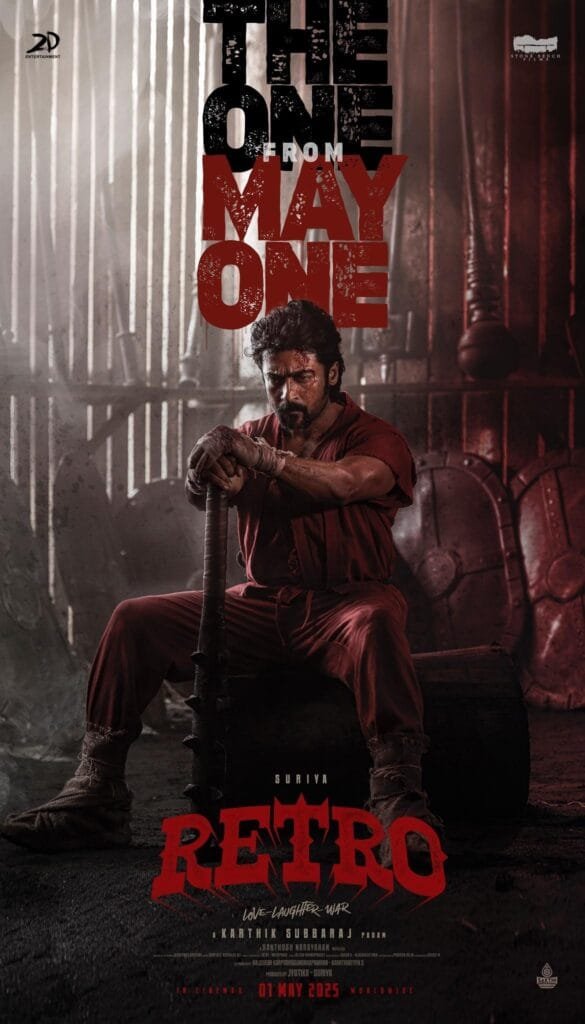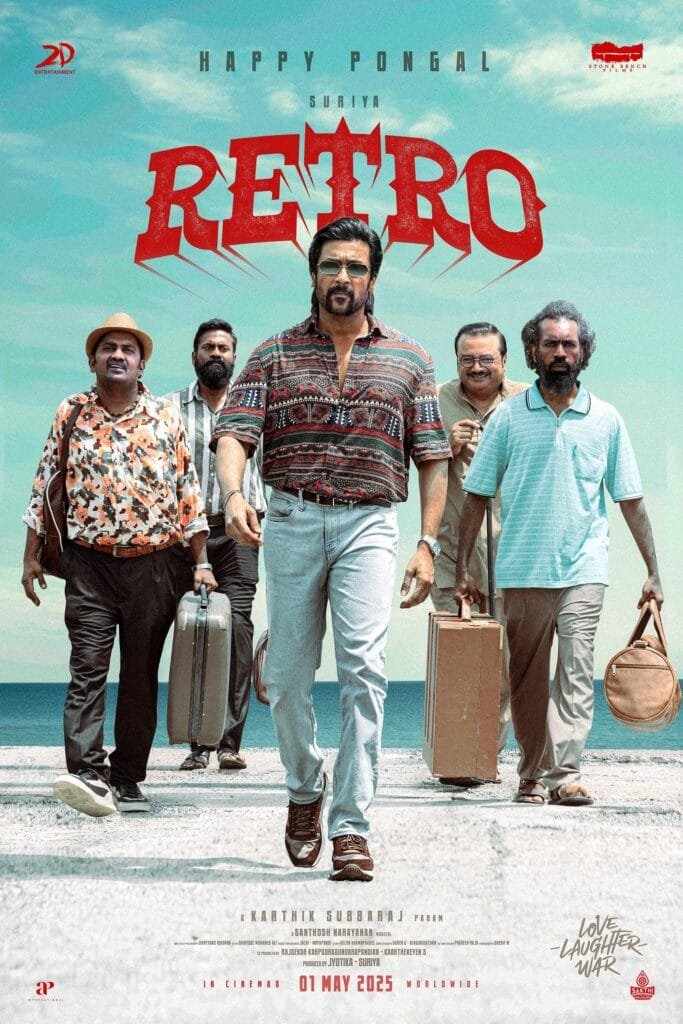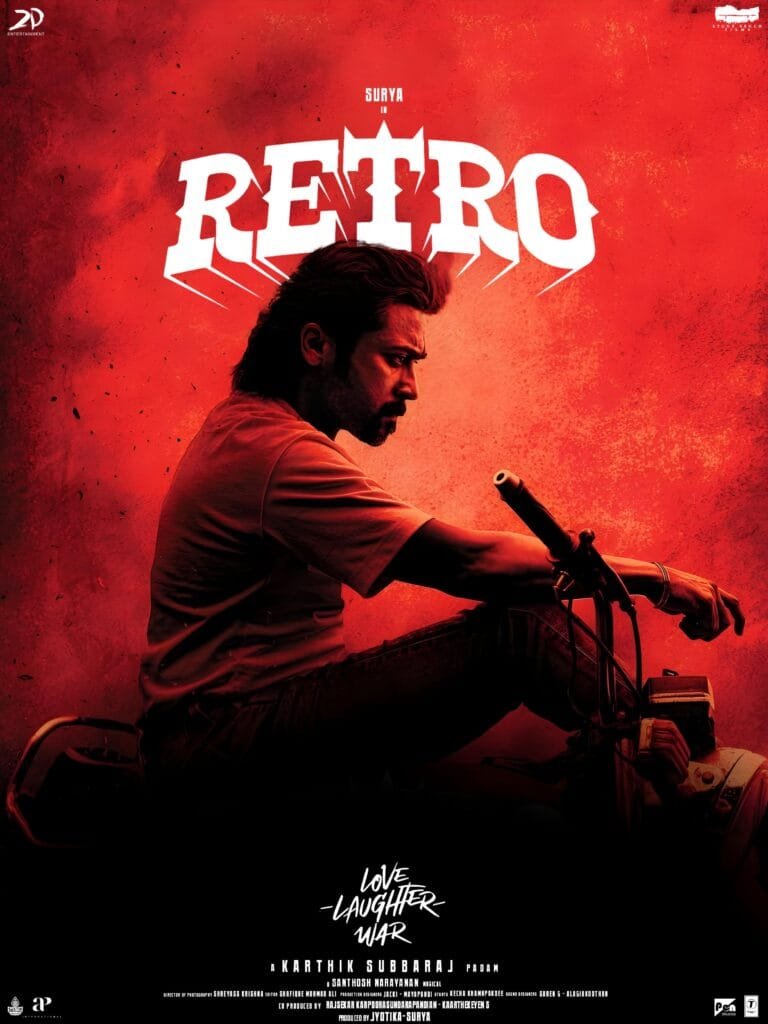Karthik Subbaraj’s latest film, Retro, is an exploration of fate and purpose through the journey of an orphan named Paarivelkannan, played by Suriya. With a strong sense of destiny tied to a Trishul birthmark, his story unfolds as a gripping blend of action, drama, and philosophy. The movie carries Subbaraj’s signature style while borrowing elements from intense crime dramas like Jigarthanda Double XL and Captain Miller. While the themes are ambitious, the storytelling sometimes feels overloaded with ideas, making it both intriguing and complex.

Acting
Suriya delivers an engaging performance, portraying Paari’s emotional depth and inner conflicts effectively. His character evolves from a troubled orphan to a feared gangster seeking peace, and he transitions between these phases seamlessly. Joju George, as Thilagan, captures the complexities of a gangster who reluctantly grows attached to Paari. Pooja Hegde, though graceful as Rukmini, doesn’t get a fully developed arc, making her presence less impactful. Nasser and Vidhu’s eccentric portrayals add moments of intensity but sometimes feel exaggerated.

Directing
Subbaraj’s direction remains visually striking and thematically rich, but Retro struggles to balance its multiple ideas. While the first half builds a fascinating world filled with omens, crime, and destiny, the latter half introduces social and political commentary that feels somewhat disconnected. His approach to irony—placing a laughter therapy clinic on gallows or pairing a violent gangster with a pacifist doctor—creates moments of brilliance, but the film’s pacing fluctuates. Certain plot turns in the Andaman Islands seem less organic, causing the story to lose some momentum.

Technical Aspects
The film boasts strong production values, with immersive cinematography that captures different eras effectively—from the turbulent 1960s to the shifting 90s landscape. A 15-minute single-take sequence early in the film, set to the Kanima song, stands out as a technical achievement, blending action and emotions seamlessly. However, the shift in setting and tone in the latter half makes it feel like multiple genres competing against each other.

Music
Santosh Narayanan’s soundtrack complements the mood of the film well. The Kanima song enhances the visual experience, particularly in pivotal moments like the wedding sequence. Subbaraj cleverly uses irony in his music choices—like a lullaby accompanying intense fight sequences—adding layers to the storytelling. However, at times, the film overexplains its themes rather than allowing music and visuals to convey the emotions naturally.
Retro is an ambitious film that blends crime, philosophy, and fate, with standout performances and stylish execution. While its intricate references to mythology, democracy, and destiny add depth, they occasionally overwhelm the core story. Suriya’s compelling portrayal keeps the film engaging even when the narrative becomes cluttered. Despite its inconsistencies, Retro earns appreciation for its daring storytelling and unique cinematic moments.

True!